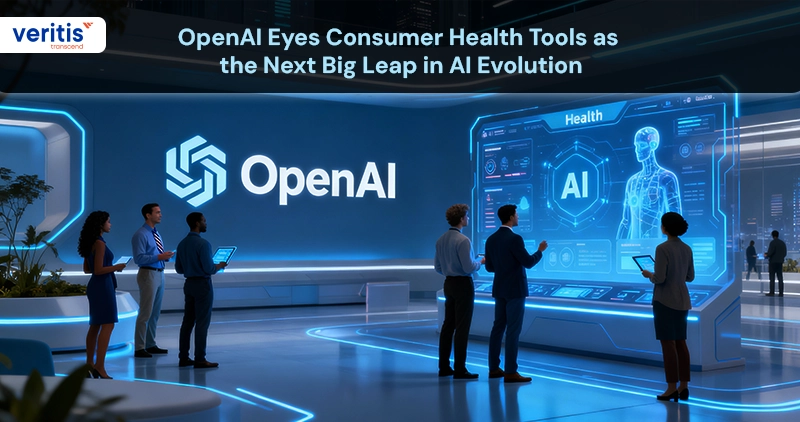
OpenAI is signaling a bold expansion into the consumer health space, aiming to apply its AI prowess beyond core infrastructure and into health focused applications. The ChatGPT maker is reportedly considering new consumer health products, from generative AI powered personal health assistants to platforms for aggregating personal health data.
This push represents one of OpenAI’s most ambitious moves beyond foundational AI services and into industry specific software like healthcare. For healthcare professionals attuned to digital innovation, the implications of this shift are profound yet grounded in technology’s evolving role in patient care.
OpenAI’s Health Ambitions
OpenAI’s push into healthcare is becoming increasingly deliberate. In 2025, it appointed Nate Gross, cofounder of Doximity, as head of healthcare strategy, and Ashley Alexander, formerly of Instagram, as VP of health products. At the HLTH conference, Gross noted that ChatGPT attracts around 800 million weekly users, many of whom ask medical questions, a sign of strong demand for trusted AI health guidance.
Tech giants have tried and failed to give consumers control over their health data, from Google Health to Amazon Halo and Microsoft HealthVault. Yet the rise of conversational AI has revived the opportunity. With the secure integration of personal health records, OpenAI could finally make the long promised “personal health assistant” a reality. Its scale and focus position it to advance AI powered healthcare, where earlier efforts stalled, signaling faster innovation in a traditionally cautious industry.
AI’s Healthcare Impact
OpenAI’s expansion into consumer health aims to build tools that bring AI directly into daily wellness and care management. The company is reportedly exploring AI powered personal health assistants, wellness tracking applications, and secure platforms for managing personal health data. These tools could help users monitor symptoms, interpret lab results, track medications, and receive personalized health guidance, all through conversational AI.
Such assistants could support doctors and patients alike by summarizing clinical notes, suggesting possible next steps, and translating complex medical language into everyday terms. For consumers, integrating wearable data and lifestyle insights could make proactive health management more accessible and data driven.
The ripple effect is clear. Healthcare professionals gain time for critical cases, startups face both partnership and competition opportunities, and enterprise platforms must evolve to connect with these new AI layers. As OpenAI brings AI from chat to care, the line between digital assistance and healthcare experience continues to blur, redefining how patients engage with technology in their wellness journey.
Conclusion
OpenAI’s move into consumer health marks a new era of AI driven healthcare, redefining how patients engage with data, providers, and wellness tools. As this transformation unfolds, healthcare organizations will need trusted partners to apply AI responsibly and effectively. Veritis stands at the forefront of this shift, combining deep healthcare expertise with advanced AI solutions to help providers turn innovation into measurable impact. With Veritis, healthcare leaders can confidently shape the digital health revolution rather than simply observe it.
Request for AI Consulting Services
Additional Resources:
- OpenAI Introduces ChatGPT Atlas, an AI Browser Shaping the Future of Digital Interaction
- Google’s Gemini AI Now Schedules Meetings Directly in Gmail
- Alibaba Launches Qwen3 Max AI Model With Over 1 Trillion Parameters
- How Generative AI in Customer Experience is Revolutionizing Through Data Automation
- Revolutionizing Incident Management With AIOps in E-commerce Platform
- Advancing Energy Innovation with a Generative AI Roadmap for Executives